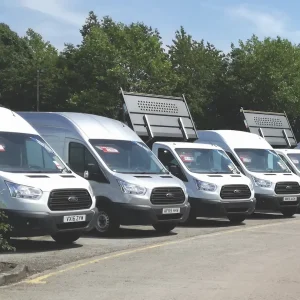Recently, van drivers have had to grapple with a seemingly endless series of new policies, mostly aimed at improving the quality of the air we breathe.
With the UK consistently breaching legal air pollution limits, policymakers have been searching for ways to reduce harmful NOx emissions. Following the VW emissions scandal of 2015, that search has focused on diesel vehicles, which include 96% of all the vans on Britain’s roads.
The most recent example came in the chancellor’s Spring Statement. Philip Hammond announced “a consultation on reduced VED [Vehicle Excise Duty] rates for the cleanest vans” to “help the great British white van driver go green”.
Unfortunately, the chancellor didn’t offer any more detail, so we don’t know what form these reduced rates will take, nor to which vans they will apply. Only once the consultation document is published will we discover exactly what the Government is planning.
As we wait for that consultation to begin, we’re also waiting to learn the outcome of another.
Last summer, the Government proposed a change to make it easier for light commercial vehicle drivers to switch to low-emission alternatives. Currently, someone with a standard category B driving licence can drive a van weighing up to 3.5 tonnes. The new policy would increase this to 4.25 tonnes, provided that the van is powered by electricity, hydrogen or gas. The consultation on it closed in October last year, but ministers have yet to announce a final decision.
And these are just two of the latest examples of policies to incentivise cleaner vans. We also have the forthcoming Ultra Low Emission Zone in London, which will begin from 8 April 2019, as well as Clean Air Zones by 2020 in Birmingham, Leeds, Nottingham, Derby and Southampton to prepare for. In London, at least, that will mean charges on older, more polluting light commercials.
With things moving so quickly, it’s important to keep up. Failure to adapt to new policies can be very costly. But get it right, and you can save money while helping to protect our environment. It pays to stay informed.
Plan for the Future is produced in association with Leaseplan.





